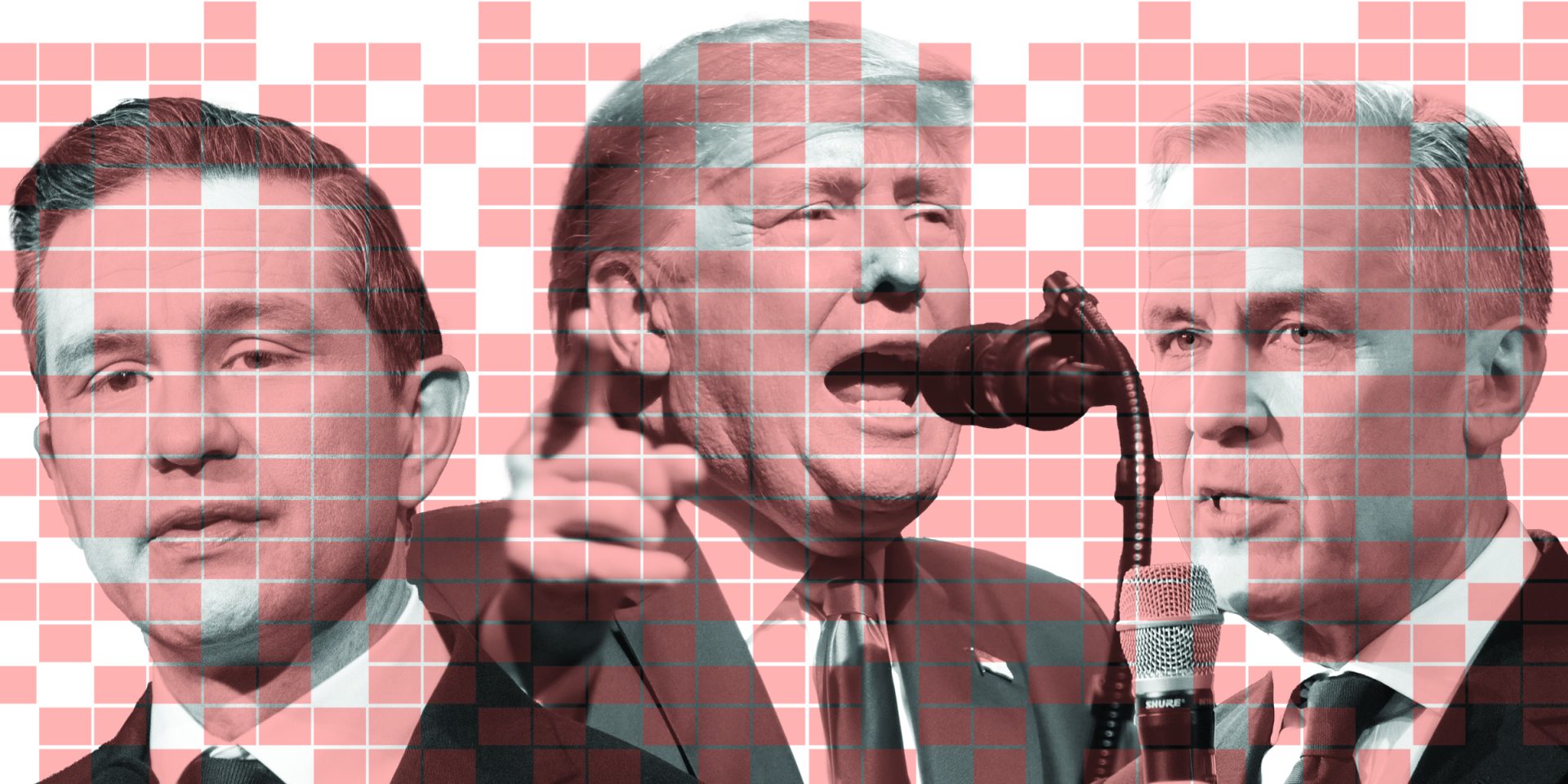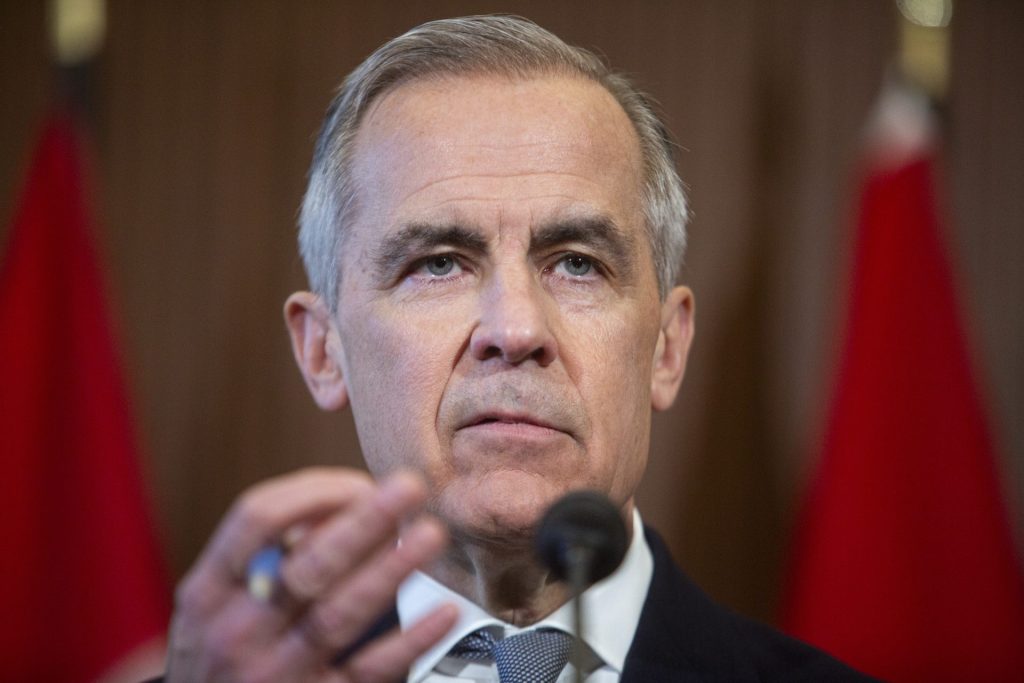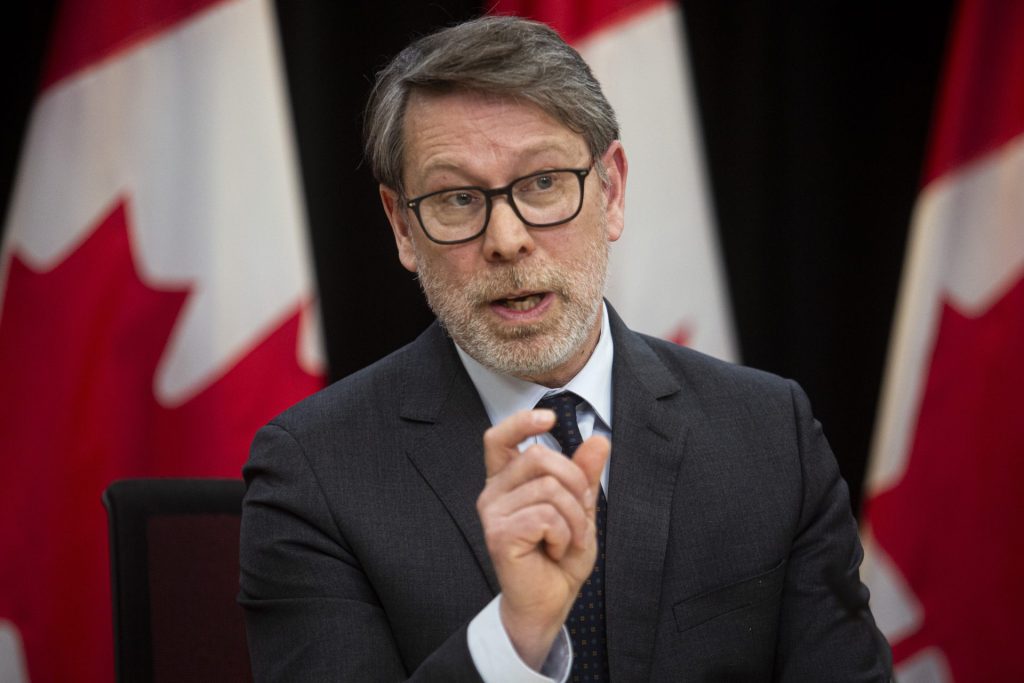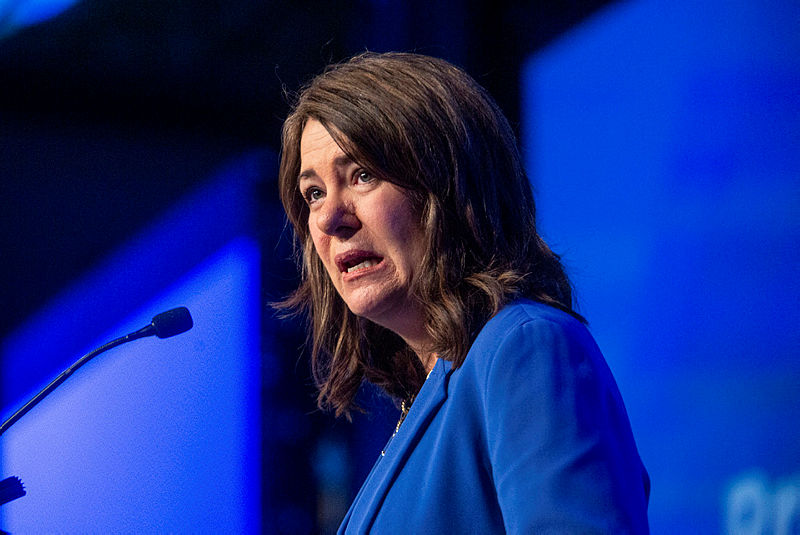‘Completely unpredictable’: will Trump’s words upend Canada’s vote?

So far, the Canadian campaign has had little encroachment from United States President Donald Trump—who has taken an uncharacteristically restrained approach to his northern neighbour since the election kicked off—but the unpredictable commander-in-chief has ample time before the April 28 vote to upset the proceedings.
In the early days of the campaign, Prime Minister Mark Carney, who is running for a seat in Nepean, Ont., held his first call with Trump on March 28. In a post-call statement, gone were Trump’s threats of absorbing Canada as a “51st state” or deriding the this country’s head of government as a “governor.”
A Prime Minister’s Office readout of the call described it as “a very constructive conversation.” Carney said that Trump noted that he respected Canada’s sovereignty—seemingly an abrupt reversal after weeks of annexation threats.
Trump “is a proverbial bull in a china shop, and is completely unpredictable,” said former Canadian diplomat Colin Robertson, who was posted to Canada’s embassy in Washington, D.C., during his foreign service career.
While Trump was restrained in the aftermath of his call with Carney, that could all change with additional tariffs expected to be enacted on April 2 or renewed comments on Canada’s sovereignty in the coming weeks, said Robertson, now a senior adviser at the Canadian Global Affairs Institute.
“He’s had such a profound effect, and I don’t think that is going to lift in the coming weeks,” he said.
Prior to his call with Trump, Carney told reporters on March 27 that Canada’s “old relationship” with its southern neighbour based on economic integration and security links is “over.”
Among democracies, there is a diplomatic convention not to comment about elections in foreign nations, but Trump has rarely adhered to convention.
Robertson said unlike foreign interference from China and India, any American intervention in the Canadian democratic process will be through public comments for all to see.
“It is public foreign interference, so it is foreign interference. But it is public, and I think the public sees it as such,” he said. “We tend to look at foreign interference behind the scenes.”

Canada’s chief electoral officer Stéphane Perrault said that a public comment wouldn’t equate to illicit foreign interference.
In a March 18 interview with Fox News, Trump said that he would “rather deal with a Liberal than a Conservative” in Ottawa, but remarked that he didn’t care who wins the Canadian election.
He said that Conservative Leader Pierre Poilievre, running in Carleton, Ont., was “no friend of mine.”
“I don’t know him, but he said negative things,” Trump said. “When he says negative things, I couldn’t care less.”
Critics of Alberta Premier Danielle Smith allege that comments she said she made to U.S. officials are tantamount to electoral interference.
She told Breitbert News that there should be a pause on tariffs, remarking that they have benefited the Liberals’ electoral fortunes. Smith has denied that her comments were an attempt to meddle in the election. Perrault said Smith’s remarks didn’t meet the threshold of interference based on Canadian law.
A question of sovereignty
Frédérick Gagnon, director of the Centre for United States Studies at Université du Québec à Montréal, said with the management of the bilateral relationship a top election issue, Canadian voters will be paying attention to the public comments Trump makes about this country.
“People are paying attention to what Trump will be doing on the tariffs, and what he will be saying on Truth Social or to journalists because he has no discipline as we know,” he said. “He likes to improvise.”
Even though Trump refrained from continuing his annexation rhetoric immediately following his call with Carney, that can change quickly due to the U.S. president’s unpredictability, Gagnon said.
“We all know that Trump can change his tone and what he says everyday. So, we still have a few weeks to go in our election … I think Trump will be tempted to comment [on] our election and maybe adopt a more robust rhetoric towards Canada in the weeks to come. I think he will not refrain from doing that,” he said.
He said the way the April 2 tariffs unfold can also have an effect on the Canadian vote.

“Everything Trump says, everything he does, can potentially have an impact on our elections. That makes this election very different than the elections we’ve seen in the past in Canada,” Gagnon said.
During previous periods of turmoil between Canadian prime ministers and American presidents, there has never been an instance of publicly endorsing a candidate. However, then-U.S. president John F. Kennedy loaned his personal pollster to Lester Pearson for the 1962 and 1963 campaigns to help his cause against John Diefenbaker.
Trump’s comments reveal his lack of respect for the sovereignty of other nations, Gagnon said.
“It seems like we have a president in the U.S. who respects even less than in his first term the sovereignty of other countries,” he said. “So he will not hesitate to say more about our elections along the way.”
Gagnon said the U.S. needs to be considered among the countries that can potentially interfere in the Canadian democratic process.
“President Trump doesn’t hesitate to interfere,” he said, remarking that the fact the comments from the U.S. president are public creates a different situation than the type of interference that other nations are employing.
Clandestine or not, public comments still are an affront to Canada’s sovereignty, Gagnon said.
“The fact that the president does not hesitate to comment [about] what’s going on in our electoral campaign for me is a sign that the relationship has changed—at least with this president,” he said. “I don’t think it’s good for our relationship that the president has been doing what he has been doing with the public comments … trying to wade in and influence the way Canadians vote and how we should vote. [He] doesn’t respect our sovereignty.”
Will Trump’s restraint last?
Trade consultant Eric Miller, president of the Rideau Potomac Strategy Group, said Carney’s approach prior to his first call with Trump led to a more restrained approach from the American president.
“I certainly have the impression that his advisers have been counselling caution,” Miller said.
“But that is one day, one meeting,” he said, remarking that looming tariffs could upend any new self-control.
“The big one is deeds, not words,” said Miller, a former senior adviser in the Canadian Embassy in Washington. “There’s a big week of deeds rather than statements that we want to pay attention to.”
He said he expects Trump to be loud on tariffs, but quiet on other aspects of the Canada-U.S. relationship.
“Trump could certainly impact the campaign and throw things into disarray if that is what he was seeking to do,” Miller said. “But fundamentally, he’s only spending so much time thinking about Canada at any given moment. I’m sure his advisers have told him [to] stay out of it.”

“That seems to be what they’re inclined to do. But that being said, they’re not going to change any of their policies towards Canada,” Miller said, remarking that Trump’s ability to influence any result in Canada’s elections is “relatively limited,” and he will have to deal with the eventual winner in the long run.
Miller said the White House will be aware that anything positive Trump says about a candidate won’t be helpful to any particular party’s electoral fortunes, and that would mean a decrease in the president commenting on absorbing Canada.
“But, it’s Donald Trump—anything’s possible, and he does things that are not always necessarily rational,” he said.
nmoss@hilltimes.com
The Hill Times






 LICENSING
LICENSING PODCAST
PODCAST ALERTS
ALERTS













